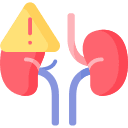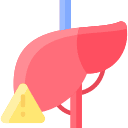(Bold for FDA approved)
 How CAPRYLIDENE works
How CAPRYLIDENE works• Induces hyperketonemia and provides an alternative energy substrate to glucose in the brain
• Caprylidene is processed in the gut, resulting in medium-chain fatty acids that pass to the liver and undergo obligate oxidation, ultimately being formed into ketone bodies (acetoacetate and betahydroxybutyric acid)
• Ketone bodies cross the blood–brain barrier and are taken up by neurons and enter the mitochondria, where they increase mitochondrial efficiency
• Ketone bodies also generate ATP and increase pools of acetyl-CoA and acetylcholine
• May begin working immediately
 Notable Side Effects
Notable Side Effects• Diarrhea, flatulence, dyspepsia
• Nausea, headache
 Life Threatening Side Effects
Life Threatening Side Effects• None reported

unusual

unusual
• Take it with food
• Sip it slowly over approximately 30 minutes
• Consider lowering the dose
• 40 g/day
 Dosage Forms
Dosage Forms• Powder 40 g/packet
• Not studied
• Drug may lose effectiveness as the course of Alzheimer disease progresses
• No
 Renal Impairment
Renal Impairment• Not studied
 Hepatic Impairment
Hepatic Impairment• Not studied
 Cardiac Impairment
Cardiac Impairment• Not studied
 Elderly
Elderly• Dose adjustment not necessary
 Children and Adolescents
Children and Adolescents• Safety and efficacy have not been established
 Pregnancy
Pregnancy• Controlled studies have not been conducted in pregnant women
• Animal studies have not shown teratogenic effects
 Breast Feeding
Breast Feeding• Unknown if caprylidene is secreted in human breast milk
Based on data Published online by Cambridge University Press
Compiled by Dr. Jash Ajmera